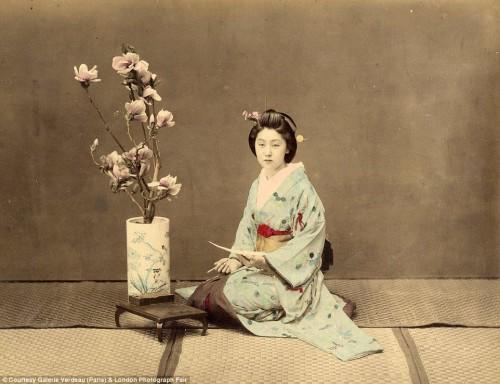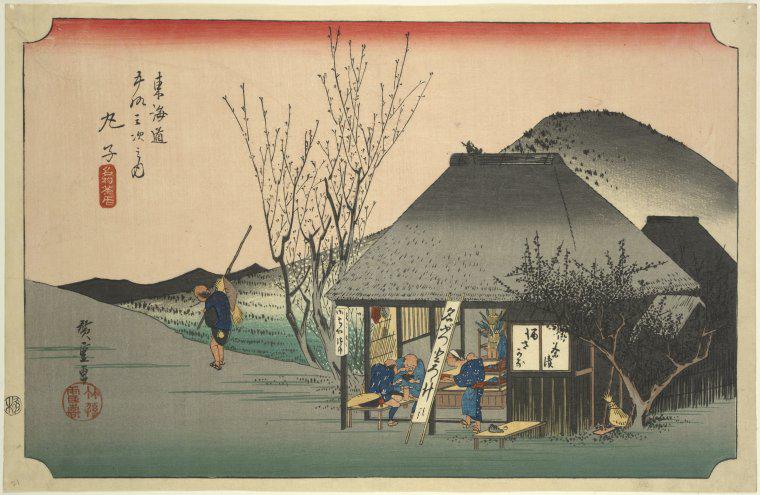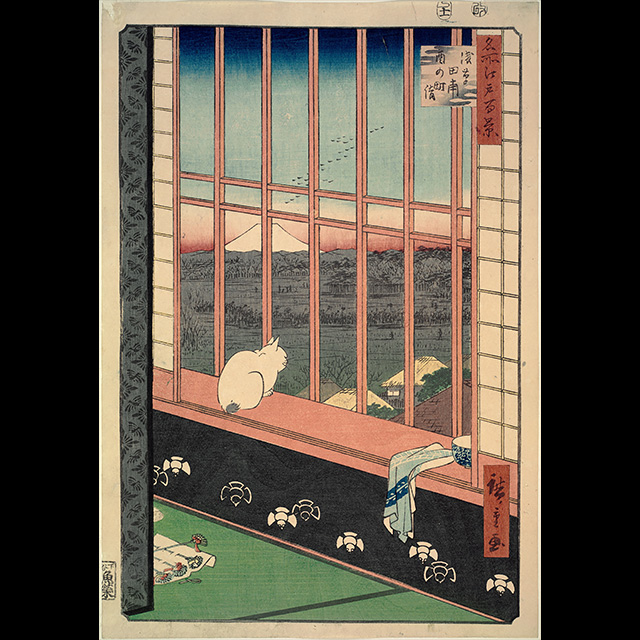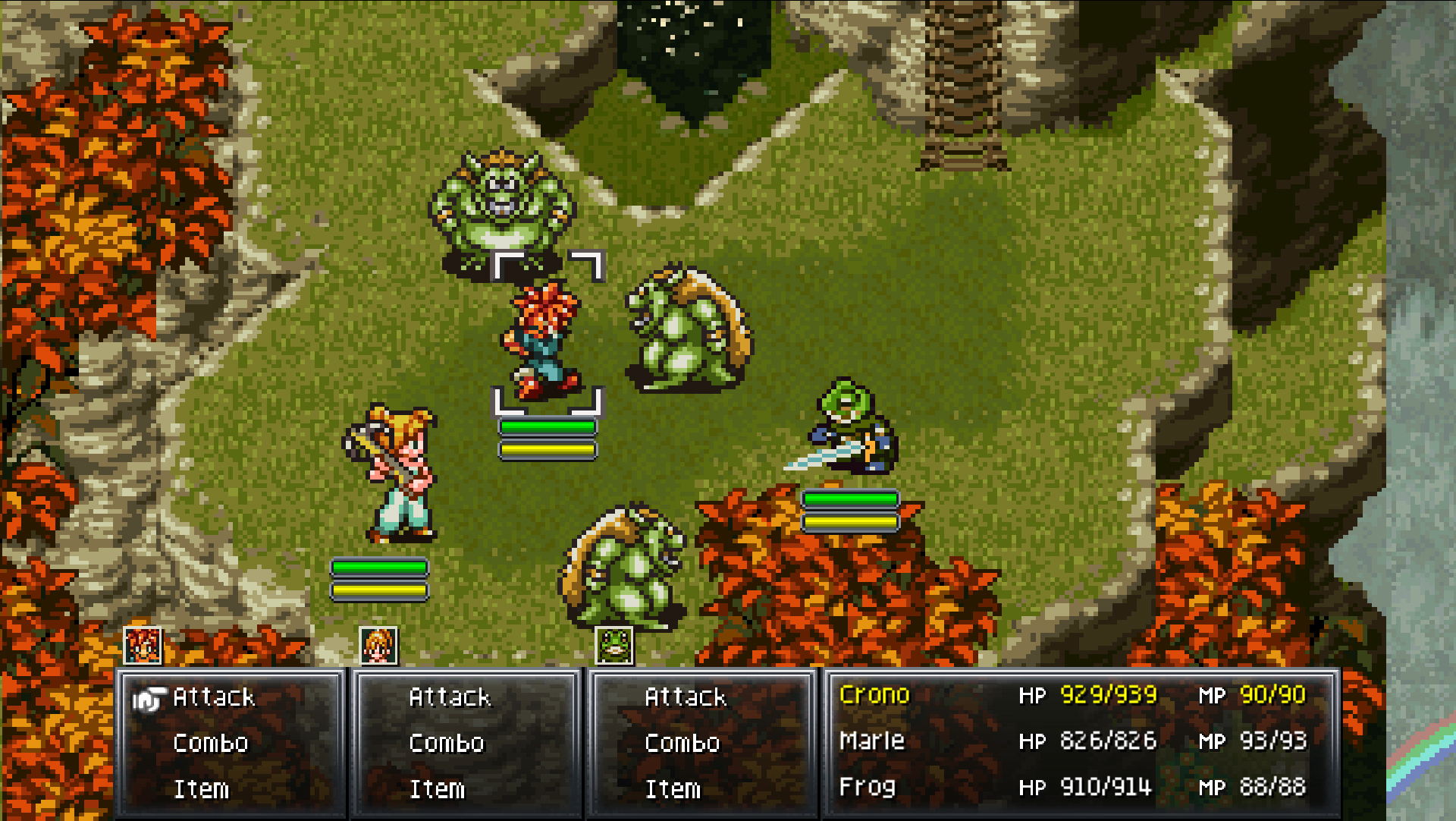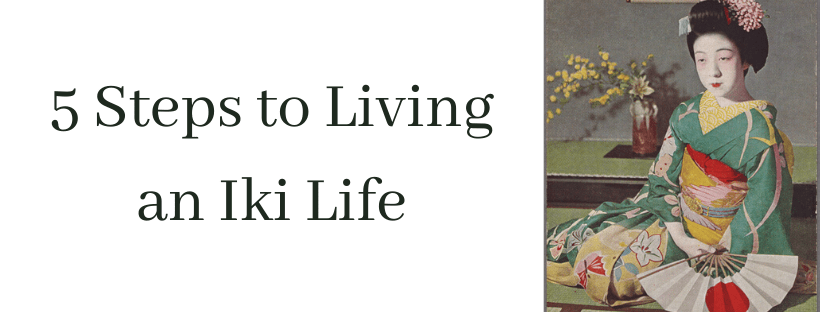
I attempted to define iki already. The shorthand definition of iki is “refined, sophisticated.” Of course, refinement today has different connotations than during the Edo Period. Living an iki life doesn’t mean you have to sip wine while watching opera. Unless that is your thing. But why would you want to live an iki life anyway? Well, a sophisticated life is often a fulfilling life. Many of us feel like something is missing. The everyday grind, well, grinds us down. We feel depressed because of it, but a good portion of this is under our control. After all, it is your life. You ultimately decide how it goes and how you feel. You have limits, but you can still work within those limits. A sophisticated life combats modern life’s hollow feeling, just as it did during the Edo Period.
Iki is individual. Because we are removed from the Edo Period, we don’t have to follow their ideas of refinement. Although many of them are worth keeping. Iki mainly deals with manners and fashion, but it can also extend to mindset and that is what we will focus on here. Let’s look at 5 ways we can cultivate iki.
Yep. This is one of my rare listicles!
1. Be Subtle and Allow Others to Draw Their Own Conclusions

We’ve all been taught that good communication is clear communication. Often we mistake clear for blunt. Iki focuses on being subtle and indirect in everything from speech to fashion. It means we have to respect others enough to draw their own conclusions. So instead of being blunt about your opinion, outline the facts surrounding it during a discussion. Let the person who asks for your thoughts draw the conclusion.
So instead of saying you favor a political party over another, discuss the ideas of the political party instead of using Democrat, Republican, Whig, or whatever label it has. Whenever you have an opinion about something, touch on your reasoning instead of the opinion itself. It will make your opinion clear while supporting it. This is hard to do.
Of course, it extends to fashion too. We want to express our personalities, but doing it loudly isn’t sophisticated. Rather, use the adage “less is more.” Have a single piece of fashion that expresses who you are. Instead of covering yourself with tattoos, select one or two that shows who you are. Ironically, expressing yourself more subtly draws more attention then being loud.
2. Cultivate a Creative Hobby
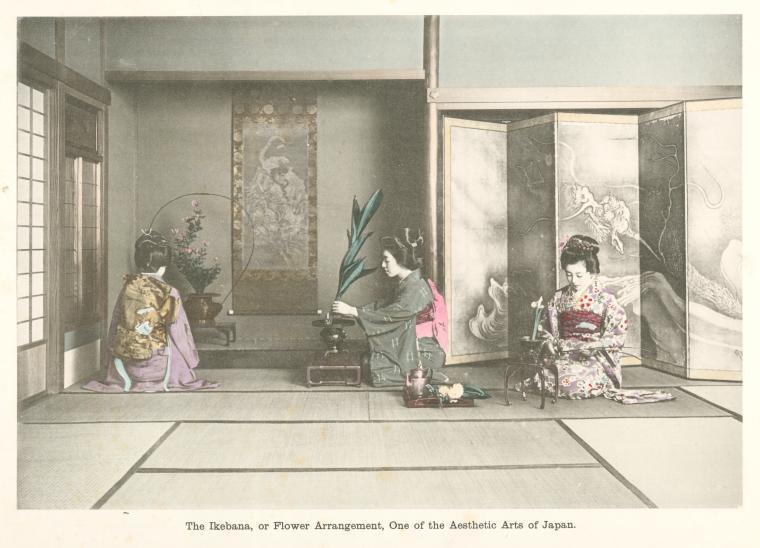
It wasn’t unusual for samurai to arrange flowers or garden. Everyone needs a creative hobby. Finding the right one can take time and experimentation, but there is something out there for everyone. It’s fine to enjoy video games and similar hobbies, but we spend much of our time consuming instead of creating. That consuming leaves a void that we attempt to fill by consuming more. Creating will fill it. Sophistication simply means there is more to you than it appears. Finding a creative hobby you feel passionate about adds depth to your character.
3. Read Widely

I’m showing my bias here, but everyone needs to read and read widely. I understand many of you dislike reading. You may even hate it or struggle with it because of dyslexia and other difficulties. But reading increases cognitive abilities and increases empathy. It expands your ability to discuss a variety of topics. Many people comment about how many different things I know. That is because I read nearly everything. I read authors and opinions that challenge me. I read what I dislike in addition to what I enjoy. You can’t be sophisticated without layers of knowledge (not to claim I’m sophisticated!). You can’t make reasoned decisions without seeing around a particular problem.
It’s best to read books. Internet articles are fine, but books engage the brain differently. They encourage deeper focus and learning. But it can be a struggle at first. Most of us are wired to skim and flit from one thing to the next. Learning how to focus deeply will be hard, and you will want to quit. But a fulfilling life requires depth and focus in all aspects. Reading teaches this.
4. Find a Physical Hobby

I struggle with this one. Outside of watching sumo, I dislike sports. Whenever I try to watch them, I fall asleep; they bore me. This also translates to how I live. I haven’t tried a sport I like. I’m not a physical person. I don’t like playing on teams. But everyone needs to find a physical hobby they can enjoy. Cultivating the mind only goes so far. Your body needs attention too.The physical hobby can be anything that gets you moving. Walking is a good choice.
I finally settled on sketch hiking and walking between trips. I would take my sketchbook with me deep into wooded areas and draw whatever caught my gaze. It allowed me to remain interested (just hiking eventually bores me) and enables me to hike for several miles. You also need to find something that works for you. If it can combine with a creative hobby, you will also be more likely to stay with it.
5. Cultivate Your Spirit
 You don’t necessarily need to find a religion or believe in God, but everyone needs to have a spiritual life. This ties into the previous 4 aspects. A spiritual life ties our often disparate aspects together. It provides a focus and a direction and even a goal. A spiritual life fosters a sense of wonder and appreciation. And these feelings help keep you motivated. When you are filled with wonder and appreciation, you don’t take your life for granted. It makes you want to cultivate it.
You don’t necessarily need to find a religion or believe in God, but everyone needs to have a spiritual life. This ties into the previous 4 aspects. A spiritual life ties our often disparate aspects together. It provides a focus and a direction and even a goal. A spiritual life fosters a sense of wonder and appreciation. And these feelings help keep you motivated. When you are filled with wonder and appreciation, you don’t take your life for granted. It makes you want to cultivate it.
Refinement is a process, not a goal. Living an iki life means forever striving to be more subtle, learned, and spiritual. It’s similar to wabi-sabi. The layers of our lives grow at different rates, but it takes work to thicken them. Refinement focuses on details while sophistication focuses on the big picture. For example, reading a wide variety of books lends to sophistication, but how you read them and how you use that information depends on refinement. Think of refinement as the act of sharpening a knife. Sophistication is selecting the right knife to sharpen and to use for the job.
At the center of iki stands respect for others, respect for their intelligence and dignity. It seeks to see what is left unsaid. This isn’t easy. It takes constant mindfulness, constant refinement. Sophistication and refinement comes down to always considering yourself a beginner. Beginners need to be willing to make mistakes and try new things to reach their goal. They also don’t brag; there’s too much to learn. Even if we could live to be a thousand years old, we still won’t have enough time to learn all we need to learn, nor would it be enough time to cultivate these 5 elements of iki. So always keep the mind of a beginner. Luckily, each moment gives us a chance to start over and reset our goals. Iki is the process of doing exactly that each moment of our lives.
